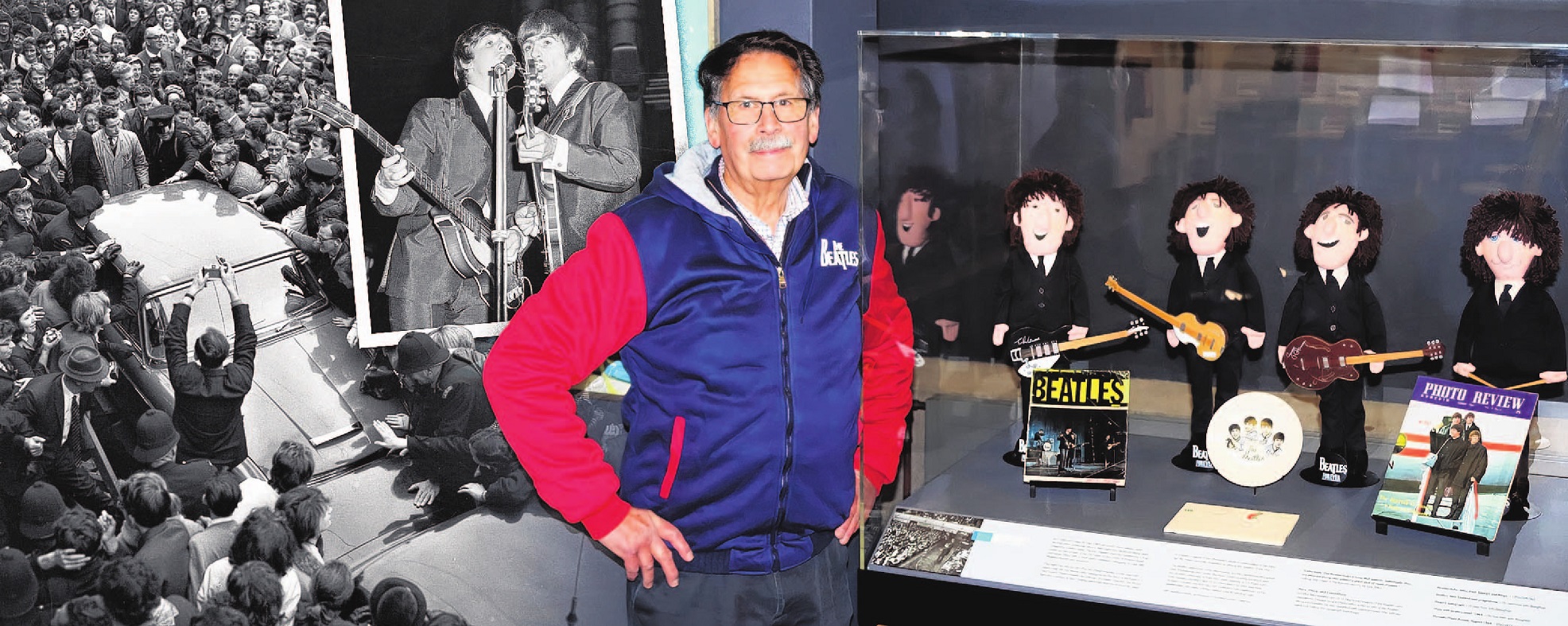
Sixty years ago this month, the arrival of The Beatles in New Zealand was a pop culture phenomenon that had teens in tears of joy, while their parents were left scratching their heads in puzzlement as Beatlemania swept across the nation.
The mop-topped foursome, riding the wave of unprecedented worldwide success, touched down at Wellington Airport on June 21, 1964, to embark on a tour of Wellington, Auckland, Dunedin and Christchurch.
One young fan was 17-year-old Hastings Boys’ High School pupil John Broughton.
Now a University of Otago Emeritus Professor and living in Dunedin, Prof Broughton recalled how he and a friend "took three days off school" to travel by train to Wellington to attend The Beatles concert at the Wellington Town Hall, spending "about 17 and six" (17 shillings and 6 pence, now calculated at $45.12) for the ticket.
"We stayed at my friend’s grandparents’ house; they lived in Cuba St, right in the city."
When they arrived at the town hall there were "masses of people".
"It was very exciting, and the thing about the show was that, of course, they had all these acts beforehand."
New Zealand acts included singers Johnny Devlin and Johnny Chester, and the band Sounds Incorporated.
"It was a huge night’s entertainment."
He and his friend were "outnumbered by girls", who began screaming even for the opening acts, he said.
But the moment The Beatles stepped on the stage, "the roar of the crowd was absolutely ginormous".
"I remember that the front row of the Wellington Town Hall, there were policemen sitting there, right across the front row.
"As soon as they came on stage there were some fans who started to run down the audience to the stage, and as soon as they did all these policemen stood up and stopped anyone getting on the stage."
The Beatles met the same frenzied crowd when they arrived to play two concerts in Dunedin on June 26.
Interviewees from a documentary marking the 30th anniversary of The Beatles’ visit, which is screening at the museum, explained how it took some subterfuge to get the quartet on to the stage.
The Beatles stayed at the City Hotel, which used to stand on the corner of Moray Pl and Princes St.
When they arrived from the airport, the streets were packed with thousands of people wanting to see them.
Getting them from their car into the hotel proved to be hazardous, because everyone was pawing and clawing at them.
Local DJ Neil Collins recalled a policeman physically picking up John Lennon and throwing him through the doors of the hotel.
He cut his knee on the lift and stormed up to his room, refusing to attend a press conference.
To get the band from the hotel to the Dunedin Town Hall for the concert, four "stooges", including Mr Collins, dressed up as decoys, heading out to a waiting limousine.
The Beatles then went out the back of the hotel in a more humble car and were able to sneak into the Town Hall via a side entrance.
For his part in the diversion, Mr Collins was able to meet the band and get autographs.
In the 1990s, Mr Collins donated his autograph of Ringo Starr for a fundraising auction at the Fortune Theatre, where Prof Broughton was able to buy it for $30.
This is one of several souvenirs he has loaned to Toitū Otago Settlers Museum for a mini-display celebrating 60 years since the band’s wild, pungent, hard-hitting music rocked the country.
Another is his 1964 programme, a 12-page booklet that provided a breathless history of the brief but chart-topping career of the "Fabulous Beatles" to date, as well as stills from their film A Hard Day’s Night and a list of the group’s extended play recordings and singles.
Looking back across 60 years, Prof Broughton still retains his love of the band, confessing to having a "huge" collection of Beatles memorabilia, and he still enjoys listening to their music.
"It was quite a pivotal moment in New Zealand.
"It was just sort of the dawning of the ’60s and everything that went with the ’60s."














